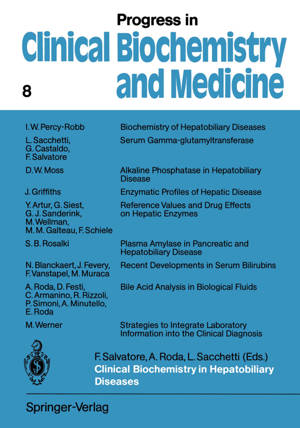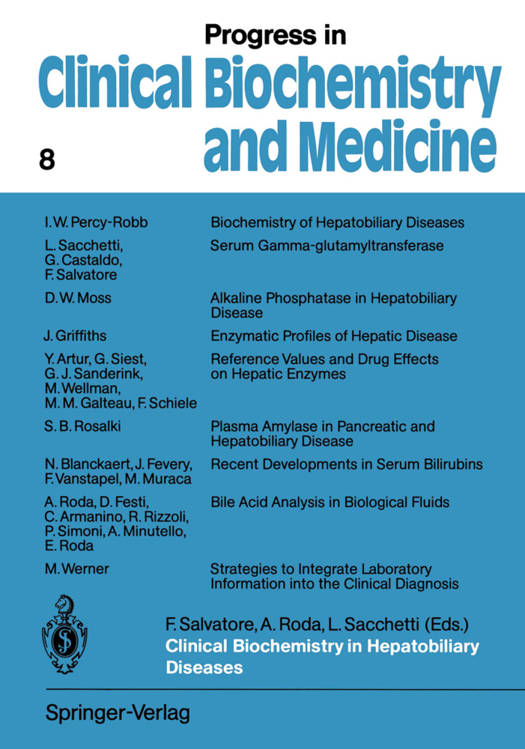
Bedankt voor het vertrouwen het afgelopen jaar! Om jou te bedanken bieden we GRATIS verzending (in België) aan op alles gedurende de hele maand januari.
- Afhalen na 1 uur in een winkel met voorraad
- In januari gratis thuislevering in België
- Ruim aanbod met 7 miljoen producten
Bedankt voor het vertrouwen het afgelopen jaar! Om jou te bedanken bieden we GRATIS verzending (in België) aan op alles gedurende de hele maand januari.
- Afhalen na 1 uur in een winkel met voorraad
- In januari gratis thuislevering in België
- Ruim aanbod met 7 miljoen producten
Zoeken
Clinical Biochemistry in Hepatobiliary Diseases
Proceedings of the International Satellite Symposium, Bologna, Italy, 1988
€ 150,48
+ 300 punten
Omschrijving
The clinical biochemistry ofhepatobiliary diseases is very widely studied, and publica- tions abound on this topic. However, there is no recent publication that provides a comprehensive collection of the various leading aspects that go to make up this complex theme. Therefore, we thought it useful to gather together a few scientists whose work has focused on the various clinical biochemistry-aspects of these disorders in order that they might discuss their experience and expertise. The aim of the International Satellite Symposium on Clinical Biochemistry in Hepatobiliary Disease, in addition to reviewing the individual aspects, was to describe the state-of-the-art so as to provide useful data for laboratory scientists and also for physicians working in the field of hepatobiliary diseases, and these two aims are clearly reflected in the chapters of this volume. The volume opens with an introductory chapter that gives a general overview of the various aspects of the clinical biochemistry of these disorders, while the closing chapter deals with an important aspect that deserves to be increasingly emphasized in laboratory medicine, i.e., strategies to integrate information coming from the laboratory to make them more useful for clinical diagnosis.
Specificaties
Betrokkenen
- Uitgeverij:
Inhoud
- Aantal bladzijden:
- 196
- Taal:
- Engels
- Reeks:
- Reeksnummer:
- nr. 8
Eigenschappen
- Productcode (EAN):
- 9783642743962
- Verschijningsdatum:
- 6/12/2011
- Uitvoering:
- Paperback
- Formaat:
- Trade paperback (VS)
- Afmetingen:
- 170 mm x 244 mm
- Gewicht:
- 344 g

Alleen bij Standaard Boekhandel
+ 300 punten op je klantenkaart van Standaard Boekhandel
Beoordelingen
We publiceren alleen reviews die voldoen aan de voorwaarden voor reviews. Bekijk onze voorwaarden voor reviews.








